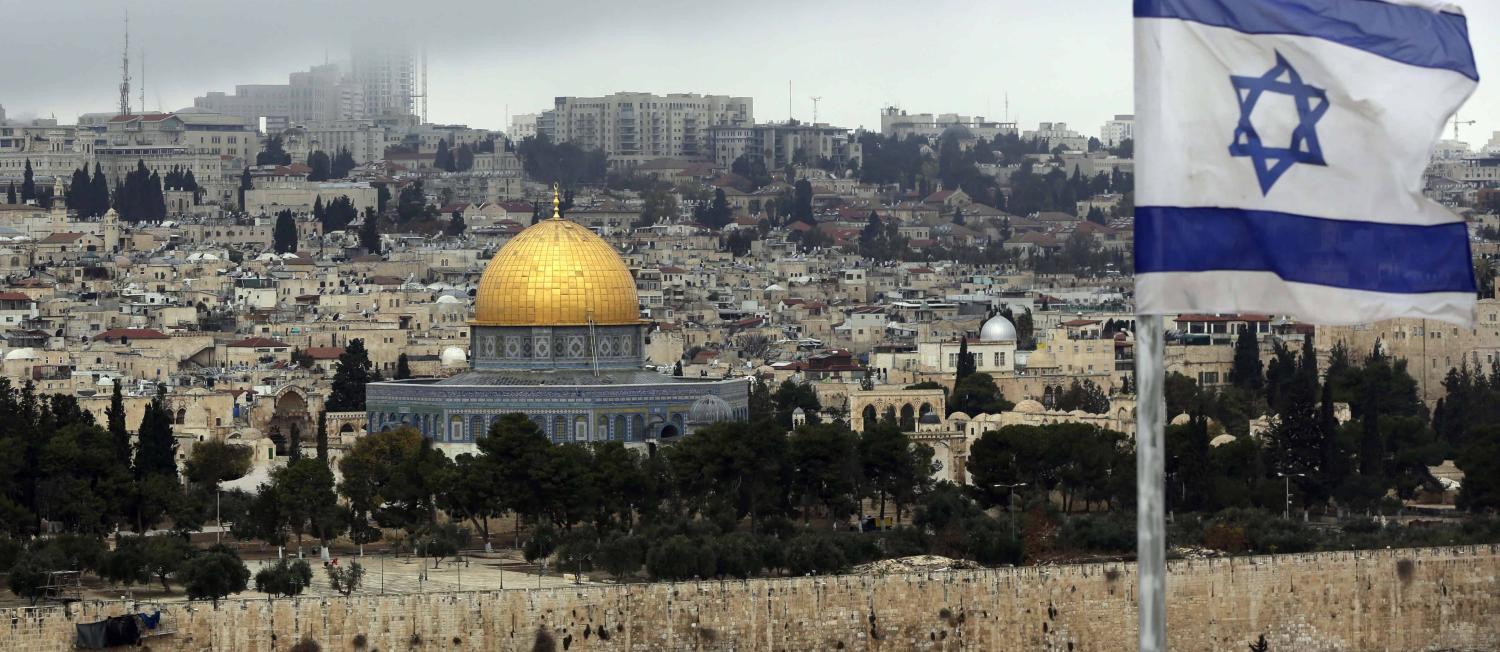Donald Trump’s decision to recognise Jerusalem as Israel’s capital is many things, but it is best to begin with two things that it is not.
First, it does not preclude Jerusalem also becoming the capital of a future Palestinian state as well as the state of Israel.
Many Israelis and Jews around the world will be rejoicing at the decision, seeing it as recognition of Israel’s right to designate its own capital, a right that all other sovereign nations enjoy. They will hope other countries will now follow America’s lead, which may well happen.
Yet it does not mean that some part of Jerusalem might not ultimately serve as the capital of a Palestinian state as well. In his announcement, Trump hints at this when he says:
We are not taking a position on any final status issues including the specific boundaries of the Israeli sovereignty in Jerusalem or the resolution of contested borders. Those questions are up to the parties involved.
Trump is effectively saying that if in future Israel and the Palestinians agree that some part of Jerusalem can serve as the capital of independent Palestinian state, then it is fine by him.
The question is, how likely is this? Even when the peace process was at its height Jerusalem was one of its thorniest issues. In the years since, the issue has been made even more difficult by new Israeli construction in East Jerusalem, where most Palestinians live. This makes it harder to carve off some contiguous part of the city to serve as the capital of a Palestinian state based in the West Bank.
And in any event, the peace process has also long been moribund. Trump has promised to revive it. I would not bet a lot of money on that happening, but that does not mean it is impossible.
Which brings me to a second observation about what the decision on Jerusalem is not. Trump’s move does not actually preclude the resumption of negotiations, although it certainly makes it more difficult.
Trump’s decision has provoked a furious condemnation from Palestinian leaders. There will be protests and there will probably also be violence. But the question Palestinian leaders will be mulling is what other options do they have?
In the absence of a peace process the Palestinians have in recent years attempted unilateral moves at the UN and elsewhere. The results have been mixed. A growing number of countries have recognised Palestinian statehood. In fact, in many ways such recognition is little different to what Trump has now done in recognising Jerusalem as Israel's capital in that it also pre-empts the outcome of negotiations. On those grounds alone the Palestinians will now increase their lobbying of other nations to recognise a Palestinian state.
The problem is unilateral recognition of Palestinian statehood has not brought a state any closer to reality. The Palestinian Authority manages a patchwork of territory across the West Bank. It has no control over borders or movement between its territories.
The Palestinians might try other new unilateral moves. The Palestinian authority could dissolve itself, for example. Palestinian negotiator Saeb Erekat has already declared the Trump’s decision has killed the two-state solution and will force forced the Palestinians to turn their struggle for their own state sitting alongside Israel into a civil rights struggle within a single state.
Despite growing public support for this option, the Palestinian leadership has been loath to adopt it, not least because it means that they would all have to give up their jobs.
Before Trump’s decision on Jerusalem the Palestinian leadership had quietly invested considerable effort into working with the Trump administration to get talks going again. They may even privately hope this will still be possible once tensions die down in the aftermath of Trump’s announcement.
Most ordinary Palestinians do not share this hope. In the aftermath of the announcement there have already been calls for a new intifada or uprising. The last time this happened, after the breakdown of talks in 2000, the Palestinians were the biggest losers. Israel imposed harsh new security measures on the Palestinians. In addition to deaths and injuries on both sides, the conflict broke the Palestinian economy and undercut support for negotiations in Israel. In the end, it brought the Palestinians no closer to their national goals.
That may be the rational calculation the leadership will now be making – and for that reason they would probably be willing to any return to negotiations Trump might offer.
The problem is ordinary Palestinians are frustrated and many no longer see their leaders as credible. So whatever the Palestinian leadership might want to do, events are likely to be dictated by what happens on the ground.
Which brings me to what Trump’s decision does represent: a risk. It is impossible to predict what the reaction to this decision will be. It is quite possible that after a few days of condemnation and threats, and possibly even violent protests around the region, things will calm down.
But it is also possible that the reaction to this move will spiral out of control in violent and unpredictable ways. It is not just the danger of provoking renewed confrontations between Israel and the Palestinians that is the problem.
In recent years, the Israeli-Palestinian conflict has become much less of a hot-button issue in the Arab world. Some Arab leaders do not even pay lip service to it anymore. But because Jerusalem is also Islam’s third holiest site, this is also an Islamic issue. Trump's announcement will test how much Jerusalem still resonates as a cause, not just in the Middle East but across Islamic communities world-wide.
Terrorist groups such as Islamic State and al-Qaeda, who have been on the back foot in the region, will use Trump’s announcement in an attempt to rally new supporters. The same even applies to mainstream Islamist groups such as the Muslim Brotherhood, which have also been struggling politically across the region.
In Egypt, for example, the Brotherhood will use the decision in an attempt to revive its public support. There are also strategic risks should the present jihadist insurgency in Egypt’s Sinai desert start mounting attacks across the border into Israel. Iran will also exploit the move to rally support in the Arab world, including by trying to embarrass Arab leaders, such as the Saudis, who have quietly been building their ties with Israel.
Such worst-case scenarios may not transpire. There is a virtue in re-thinking old assumptions about how to achieve Israeli-Palestinian peace, not least because as Trump noted, past approaches haven't worked. The problem is, this is not what Trump is doing.
To borrow the appropriate gambling metaphor, he is simply rolling the dice. That is risky at the best of times. But at a time when the Middle East is so volatile and febrile, it is incredibly reckless.

